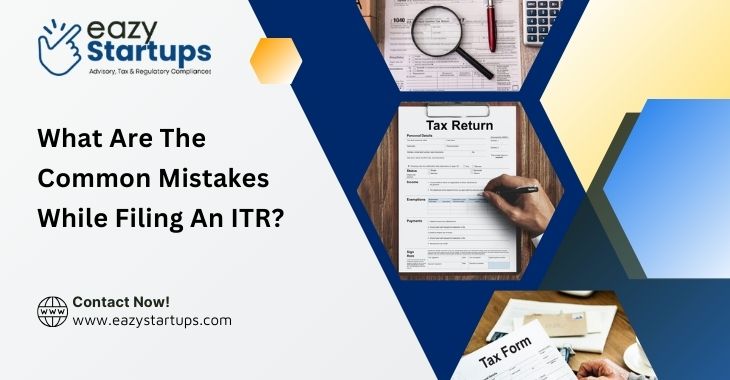In addition to being required by law, filing your income taxes on time has a number of advantages that can improve your financial situation and sense of security. Here are seven strong arguments for making sure your income tax is filed on time. If you want to opt for Online Income Tax Filing or Income Tax Return Filing, reach out to Eazy Startups for a seamless process with our trained experts.
Let’s delve into the discussion:-
1.Avoid Penalties and Interest
2. Facilitate Loan Approvals
3. Claim Tax Refunds Promptly
4. Carry Forward Losses
5. Avoid Scrutiny and Notices
6. Keep accurate financial records
7. Contribute to Nation-Building
Avoid Penalties and Interest:
Avoiding penalties and interest is one of the most obvious advantages of submitting your income taxes on time. Late filers are subject to penalty from the tax authorities, which mount up quickly. Your financial hardship could be exacerbated by interest charges on the outstanding balance in addition to the penalties. You can spare yourself these extra expenses and worry by filing on time.
Facilitate Loan Approvals:
When you seek for loans, whether they be personal, auto, or house loans, submitting your taxes on time is essential. As part of their documentation requirements, financial institutions frequently need your income tax returns (ITR) for the previous few years. Tax return filing on a regular and timely basis can streamline this procedure and improve your chances of getting approved for a loan. It acts as evidence of your earnings and consistency, which gives lenders additional reason to see you as a trustworthy applicant.
Claim Tax Refunds Promptly:
You are eligible for a refund if you paid more tax than you should have during the fiscal year and you timely file your income tax return. You can get your refund faster if you file as soon as possible. You may have to wait longer to receive your money back if you file later than you would like. Early Income Tax Filing guarantees prompt and effective processing of your claim.
Carry Forward Losses:
You can deduct losses from your investments or business in subsequent years from any profits you may make, but only provided you file your income tax return on time. This may enable you to save a sizable sum of money by lowering your tax obligation in the next years. But only those who submit by the deadline are eligible for this bonus.
Avoid Scrutiny and Notices:
The likelihood that the tax authorities will choose to review your income tax return is decreased when you file it on time. Errors are more likely to occur when paperwork is filed incorrectly or late, which may draw attention and maybe trigger an audit or inquiry. You may prevent these issues and have a better, less stressful tax experience by submitting on time and accurately.
Keep accurate financial records:
Maintaining a thorough financial record is facilitated by timely and routinely filing your income tax return. This can be helpful for a number of things, like government subsidies, credit cards, and visa applications. In order to assist you make wise financial decisions, it also supports financial planning and helps you maintain tabs on your earnings, expenses, and assets.
Contribute to Nation-Building:
Another method you may support the development of the country is by timely filing your income taxes. The government receives the majority of its financing from taxes, which it uses to pay for public services including military, infrastructure, healthcare, and education. You may help sustain these vital services and contribute to the general development and well-being of society by timely filing your taxes.
Concluding Words
In addition to being required by law, filing your income taxes on time has several advantages, including cash savings and peace of mind. If you want to opt for Online Income Tax Filing or Income Tax Return Filing, reach out to Eazy Startups for a seamless process.











Recent Comments